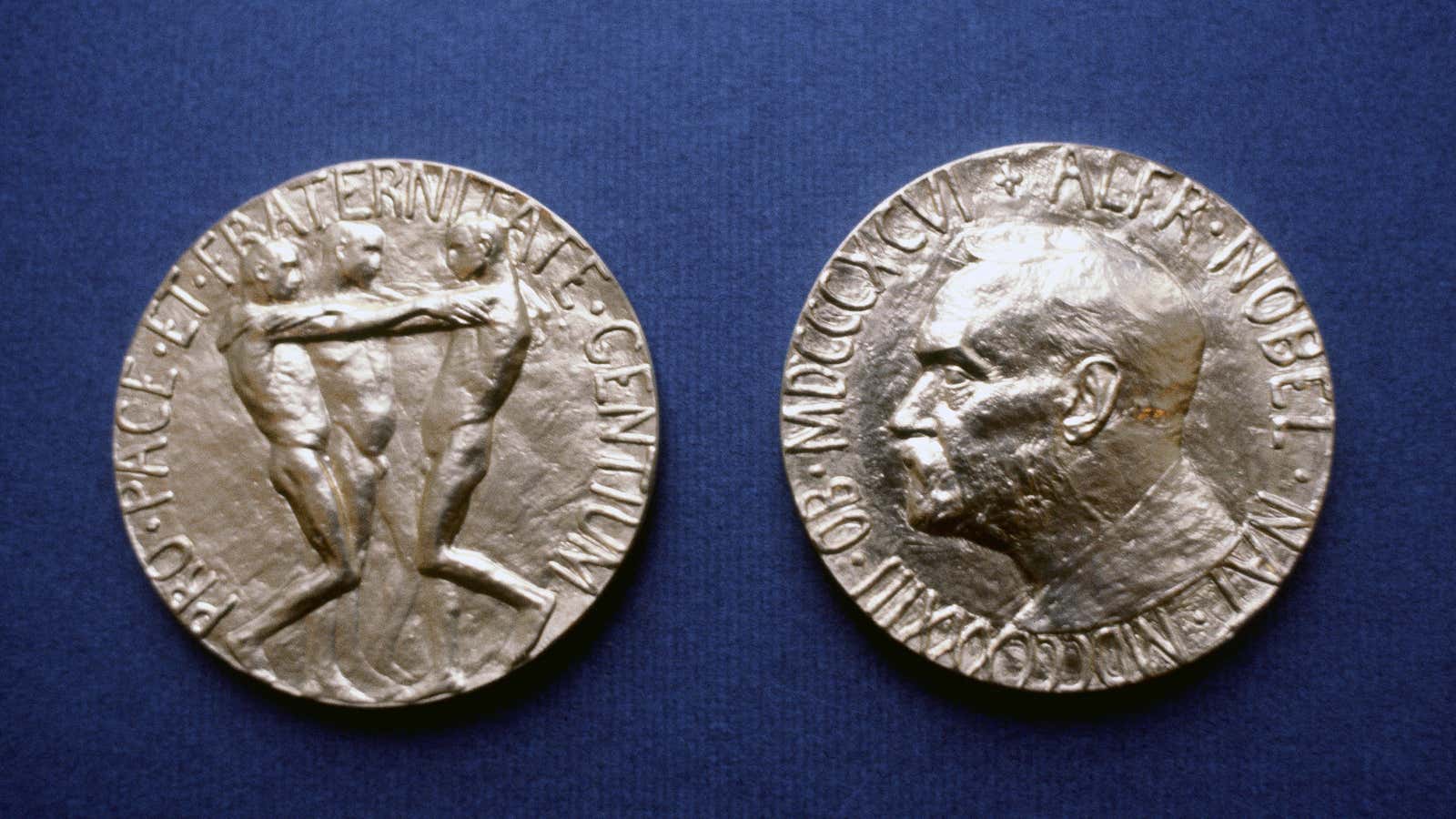After averaging returns of 1.5% to 2% annually over the last decade, the foundation that awards for the Nobel Prizes is looking for a few good hedge funds to help it boost returns. The decision comes after the Nobel Foundation decided to cut the size of the cash prizes it bestows on winners down from 10 million to 8 million kroner, or about $1.2 million.
The fund finds itself in a situation faced by plenty of investors dealing with low interest rates. Of course there are also pitfalls in handing over your money to some of the “smart guys” that run hedge funds. For one thing, their performance on the whole hasn’t been much better than the Nobel Foundation’s in recent years. Bloomberg writes:
Average hedge fund returns don’t suggest the Nobel Foundation will be much better off. The HFRX Global Hedge Fund Index, a measure of hedge fund performance, has gained 2.4 percent in the first 11 months of this year. The MSCI world index of global stocks returned 11 percent in the same period, though it fell 26 percent between the end of 2007 and the end of 2011.
But of course, the hedge fund game is all about finding the funds that are the outliers. In recent years, some of the best performing hedge funds have been mortgage hedge funds.
Of course, there is also a certain amount of risk involved with chasing higher returns. And hedge funds are no exception, even hedge funds run by really, really, really smart guys. Jusk ask Myron S. Scholes, a winner of the Nobel in economics. True, the economics prize was endowed by Sweden’s central bank, but the Nobel Foundation administers it. And its imprimatur didn’t do much to keep Long Term Capital Management, in which Scholes was a principal, from a nasty and noticeable collapse in the late 1990s.
